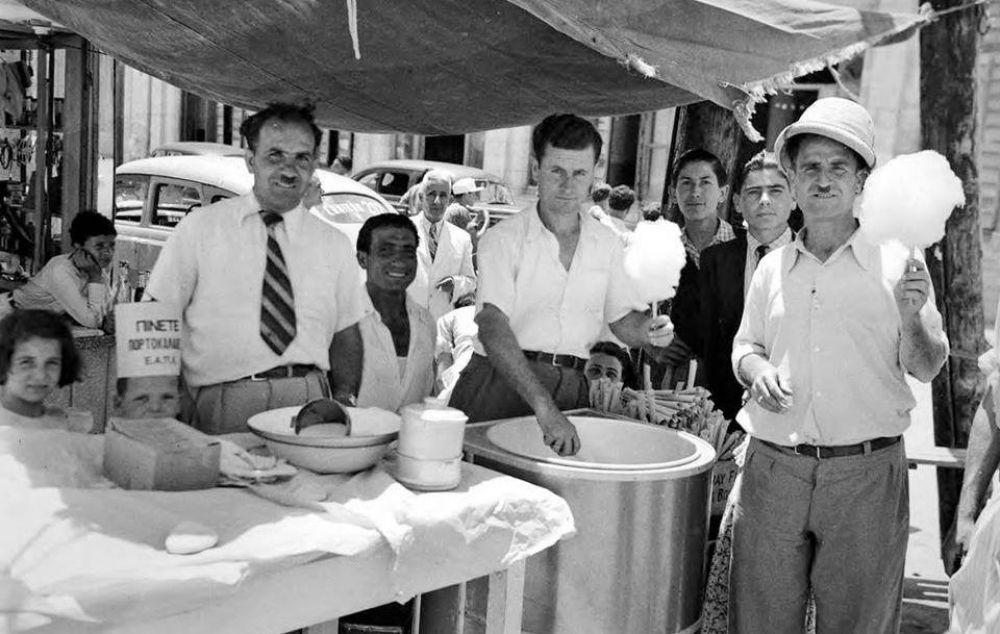Cypriots are in for a long weekend. On Monday 24 June, the island celebrates the Day of the Holy Spirit, or Kataklysmos.
As you walk down the street, do not be surprised if you are suddenly splashed with water from around the corner. This is a traditional Cypriot pastime. With water at the heart of the holiday - a symbol of cleansing and rebirth - it is almost impossible to stay dry! And you don't have to!
In the distant past, people believed that the element of the sea had a cleansing power. Anyone who came into contact with the dead (which was customarily on Saturdays) had to wash themselves with seawater. This ancient custom lives on today. Only the widespread practice of dousing oneself with water has become a fun game in which the main aim is to get soaked to the skin. Whether you choose to swim, play in the water or participate in water sports is up to you. The main rule is to stay dry!
Kataklysmos is a great opportunity to get to know the folk traditions of Cyprus. This holiday marks the beginning of the bathing season in Cyprus. For Cypriots, Kataklysmos is a celebration that heralds the arrival of the long-awaited summer!
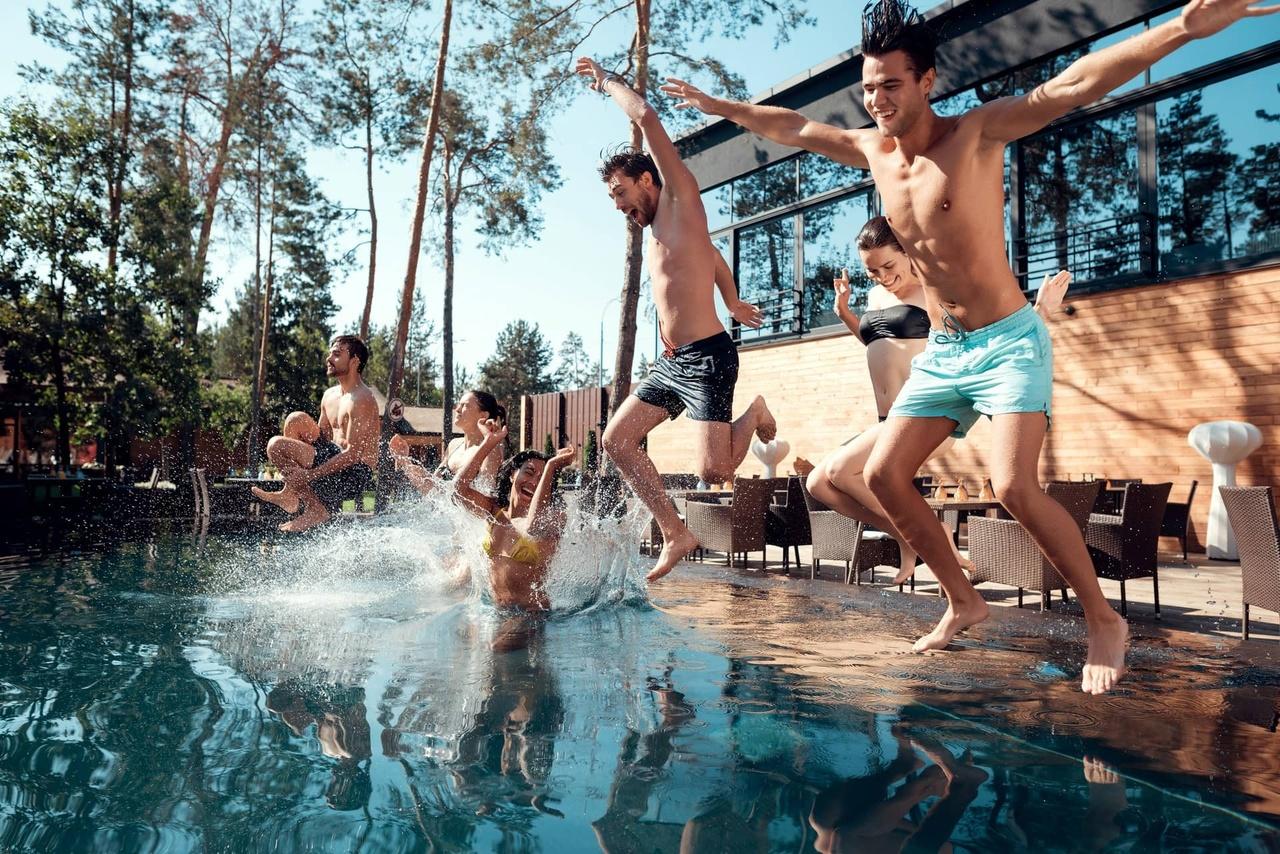
History of the festival
The roots of Kataklysmos go back to ancient times. Its history is closely linked to mythology and religious rituals, combining elements of Greek and Christian traditions. One of the main sources of inspiration for the holiday is the ancient Greek myth of Deucalion and Pyrrhus, an analogue to the Biblical story of Noah and the Flood.
According to the myth, Zeus the Thunderer decided to destroy the people of Earth who were becoming increasingly insolent and intolerable - impious and arrogant, not worshipping the gods with due respect, and depriving them of the seemingly unchanging Olympian tranquillity. And a monstrous downpour fell from the heavens, wiping out the entire human race, cities scattered under the pressure of the torrents, with only Mount Parnassus rising above the waters. Only two people were saved - Prometheus' son Deucalion and his wife Pyrrha. They sailed for nine days and nights in a wooden box on the raging sea. On the tenth day the box was washed ashore by the waves. The happy couple, it should be understood, devoted all their energies to ensuring that the human race did not become extinct.
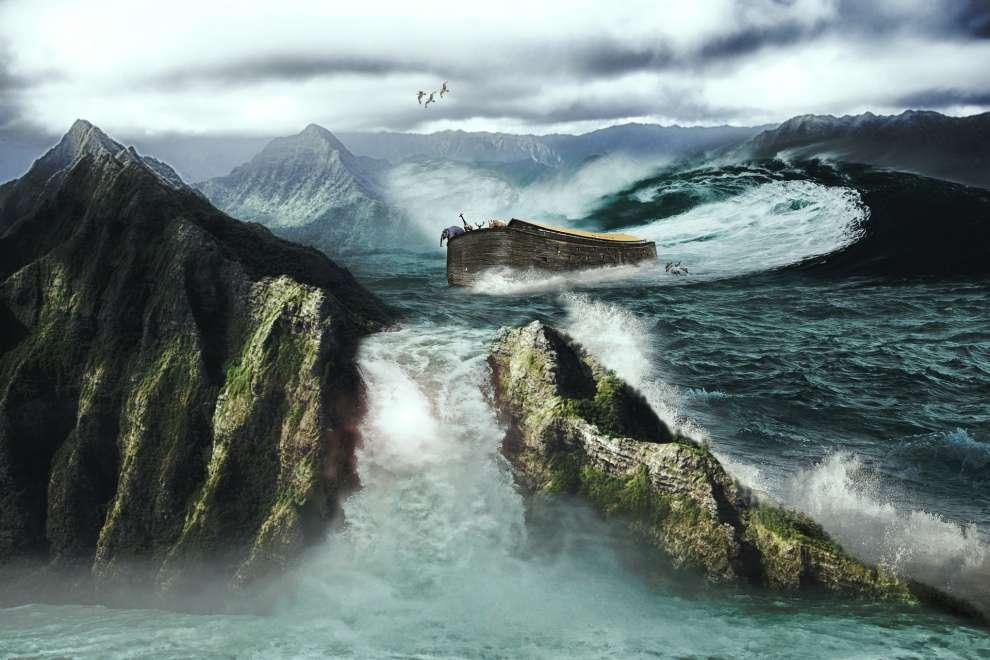
"Kataklysmos" means "flood" in ancient Greek. But of course the island is not celebrating the flood itself, but its end. For the inhabitants of Cyprus, surrounded by the Mediterranean, fresh water literally meant life.
In the Christian tradition, Kataklysmos is also associated with Pentecost (the day of the Holy Spirit). It is a feast celebrated on the fiftieth day after Easter. It symbolises renewal and purification, which is reflected in the rituals of Kataklysmos. According to historical records, Kataklysmos has been celebrated in Cyprus since ancient times. According to the historian Leontius of Maheras, Kataklysmos replaced the glorification of Aphrodite and Adonis, and the "sea enfeoffers" marked the arrival of summer on the island. After the end of the Frankish domination and with the arrival of the Ottomans, the festival became even more popular, with many references dating back to the 17th and 19th centuries.
On the day of the Holy Spirit, many people gather by the sea, on the "holy shore", as the coast is called on this day. After taking a dip in the sea, they sail along the shore in boats all day long, splashing water on each other for fun or throwing each other into the sea. In central Cyprus, where there is no access to the sea, people go to rivers or springs and amuse themselves by splashing each other. At home, it is customary to douse each other with a 'pitsikla' (a homemade water pistol made of reeds), with bundles of grass or simply from glasses. To remain dry on this day is a bad omen," wrote Athanasios Sakellarios, the founder of Cypriot ethnography.
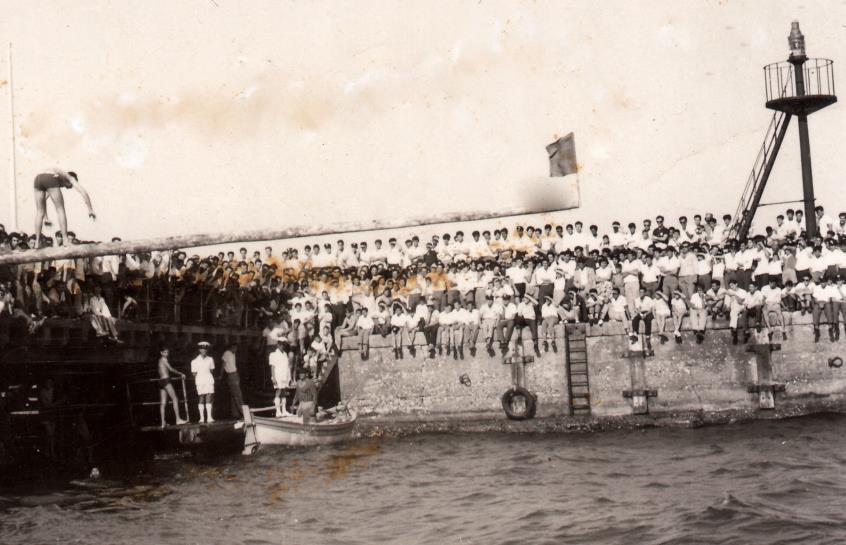
At the beginning of the twentieth century, Kataklysmos took on an important commercial significance for Cypriots. Huge numbers of small traders began to come to the main towns for the holiday and organised fairs in them. From 1918, Kataklysmos became an official event organised by the Larnaca municipality. The celebration of Kataklysmos was a trademark of Famagusta in the last century, but after the Turkish invasion in 1974, Ayia Napa and Paralimni became the main venues in addition to Larnaca.
Customs and rituals
Today, Kataklysmos is a colourful and diverse celebration that covers the whole island, especially the coastal towns. The programme is similar in many parts of Cyprus and is repeated from year to year. However, it is celebrated with the greatest fanfare in Larnaca. Lucky holidaymakers in the coastal town at this time have the opportunity to immerse themselves in the atmosphere of general madness and jubilation. The festivities begin on the Phoenicoudes promenade, where in ancient times lavish feasts in honour of Aphrodite were held to the sound of the waves.
From the early hours of the morning, the inhabitants of the town - the direct participants in the festivities and the guardians of the traditions - and the invited guests, who are at first curious and then convinced that they are in the right place, go to the temple for a solemn service. After the service, the procession moves to the embankment. The priest consecrates the cross and throws it into the water. Immediately after him, strong, agile men run after it. The one who finds the cross at the bottom of the sea becomes the king of the feast, and the others his retinue. The king sits on a throne made of planks and decorated with seaweed and shells. From the throne, the king gives his order: "Everyone bathe!" The crowd rushes into the sea in their clothes, adults and children alike, and those who are not in a hurry to take a dip are dragged in by force. Let me remind you that getting wet to the skin in Cataclysmos is a holy thing, otherwise you will not be granted purification and absolution.

Meanwhile, on the seafront at Finikoudes, pandemonium breaks out near the colourful stalls. They sell authentic Cypriot sweets: honey doughnuts loukoumades, nut candies in grape juice sudzoukos, marshmallows, rahat loukoum and many, many other eye-catching items. And what is a fair without handicrafts? There are ceramics, bronze jewellery, various souvenirs and inexpensive but original costume jewellery!
But a holiday is not just about spending a lot of money on sweets and trinkets. It is also a lot of fun, with everyone from the youngest to the oldest taking part. There are all kinds of attractions for children: "Ferris wheels, trampolines, slides and pools with boats. Adults can compete in strength and dexterity contests, quizzes and other guessing games, and the public is particularly interested in the recitation contest.
In addition to all the above, various rituals are performed during the Cataclysmos. People sprinkle water on each other, symbolising purification and renewal. This tradition has both religious and symbolic meaning, associated with the beginning of a new cycle of life and getting rid of the old and unnecessary. Kataklysmos is also accompanied by concerts featuring both local artists and guest stars. As darkness falls, a magnificent fireworks display is set off in the sky over the calm sea.
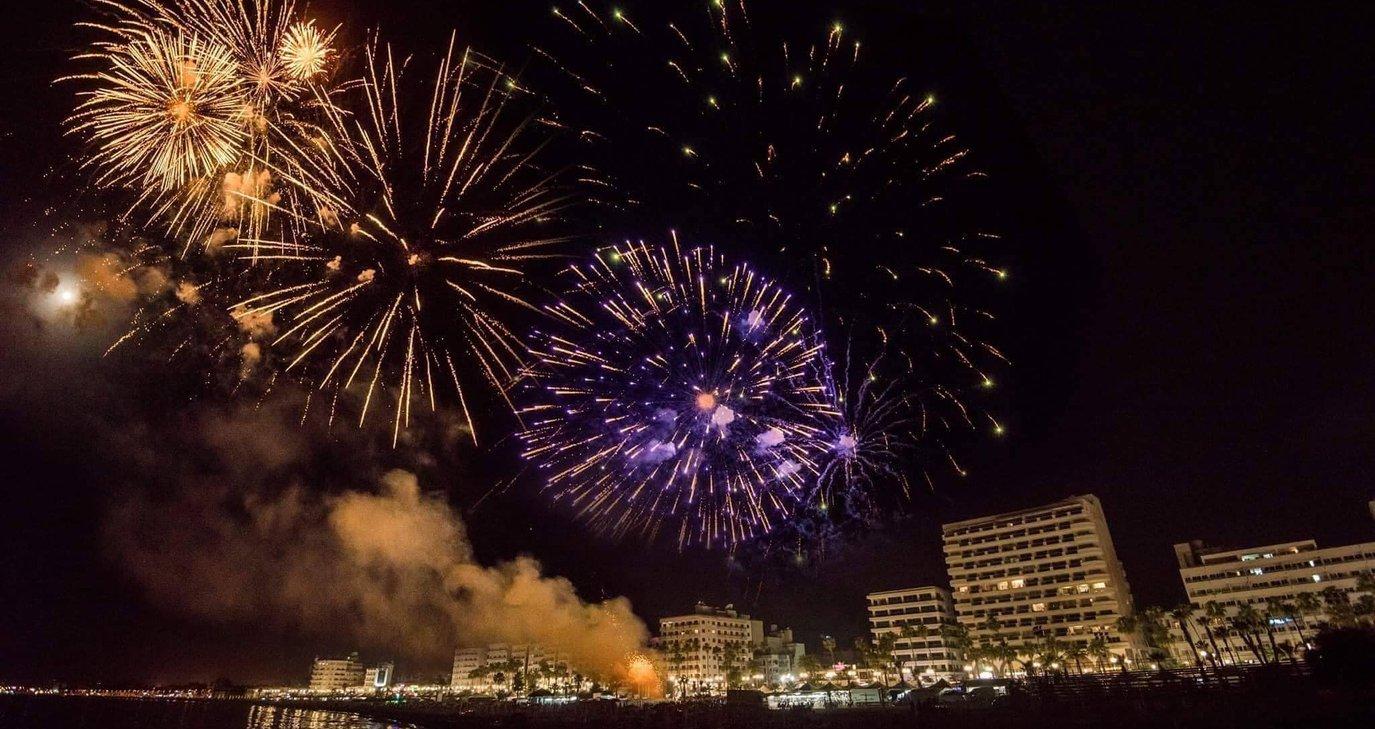
Years without Kataklysmos
Kataklysmos is one of the most important holidays in Cypriot culture. In the history of its existence it has only been cancelled 9 times and for very good reasons:
- 1940 to 1945 (during World War II),
- in 1956 and 1957 (due to the ban on public events by the British administration as part of the fight against the EOKA liberation movement),
- 1975 (due to the Turkish invasion of 1974).
- in 2021 (due to pandemic restrictions).
The importance of the holiday for Cypriots
Kataklysmos is not only a water festival, but also an important cultural event for Cypriots. It helps to strengthen social ties, revive traditions and pass on cultural heritage from one generation to the next. Kataklysmos reminds people of the importance of water as a source of life and a symbol of purity. For many Cypriots, Kataklysmos is a time when family and friends come together to enjoy each other's company. Sharing this time together helps to build strong social bonds and foster a spirit of solidarity within the community. The celebration of Kataklysmos allows Cypriots to express their identity, pride in their culture and a sense of unity, creating an atmosphere of joy, cleansing and renewal.
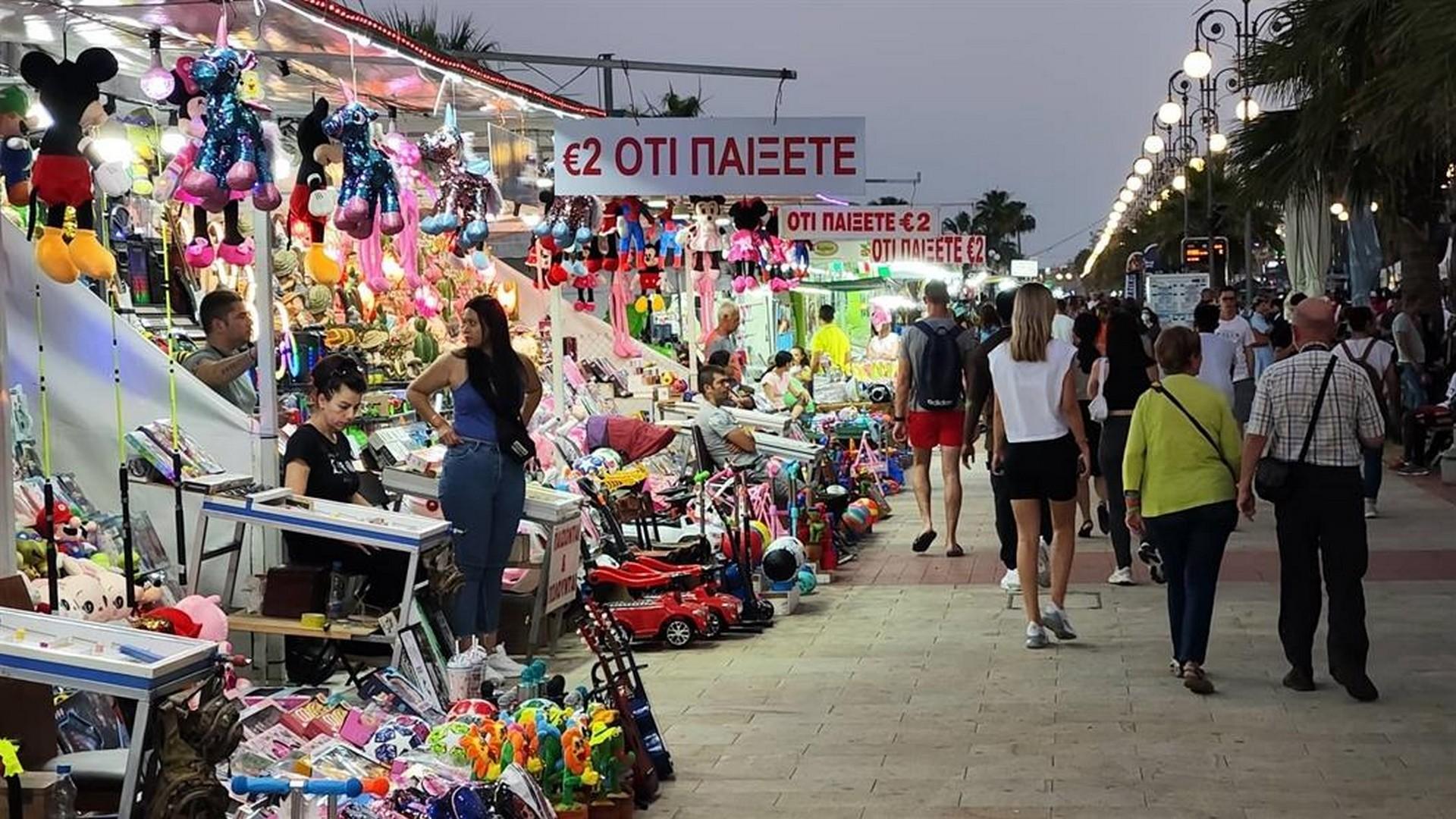
Kataklysmos 2024 Larnaca and Limassol programme
For six consecutive days, residents and visitors to Larnaca will be able to take part in competitions in Cypriot poetry, love songs, folk dancing and whistling.
The festival opens on Friday 21 June at 20:00. There will be a parade along the Phinikoudes promenade with members of cultural associations, dance groups, the Larnaca Maritime Club, Famagusta Scout Troop 30, the Cypriot Drivers Association and the Municipal Philharmonic Orchestra.
Two stages will be open in the city: in Kimonos Square and in Europe Square. The festival will feature famous Cypriot and Greek artists. There will be a theatre in the area of the medieval fortress. It will be the venue for the Shadow Theatre Festival on 21, 22, 24 and 25 June. Stalls will be set up in Europe Square selling traditional Cypriot handicrafts. Throughout the Kataklysmos celebrations, sea and beach sports competitions will be held at Finikoudes Promenade: canoe and kayak races, yacht races, beach volleyball. Swimming competitions will be held at the Larnaca Marine Club swimming pool and a lightning tournament at the Golden Bay Hotel.
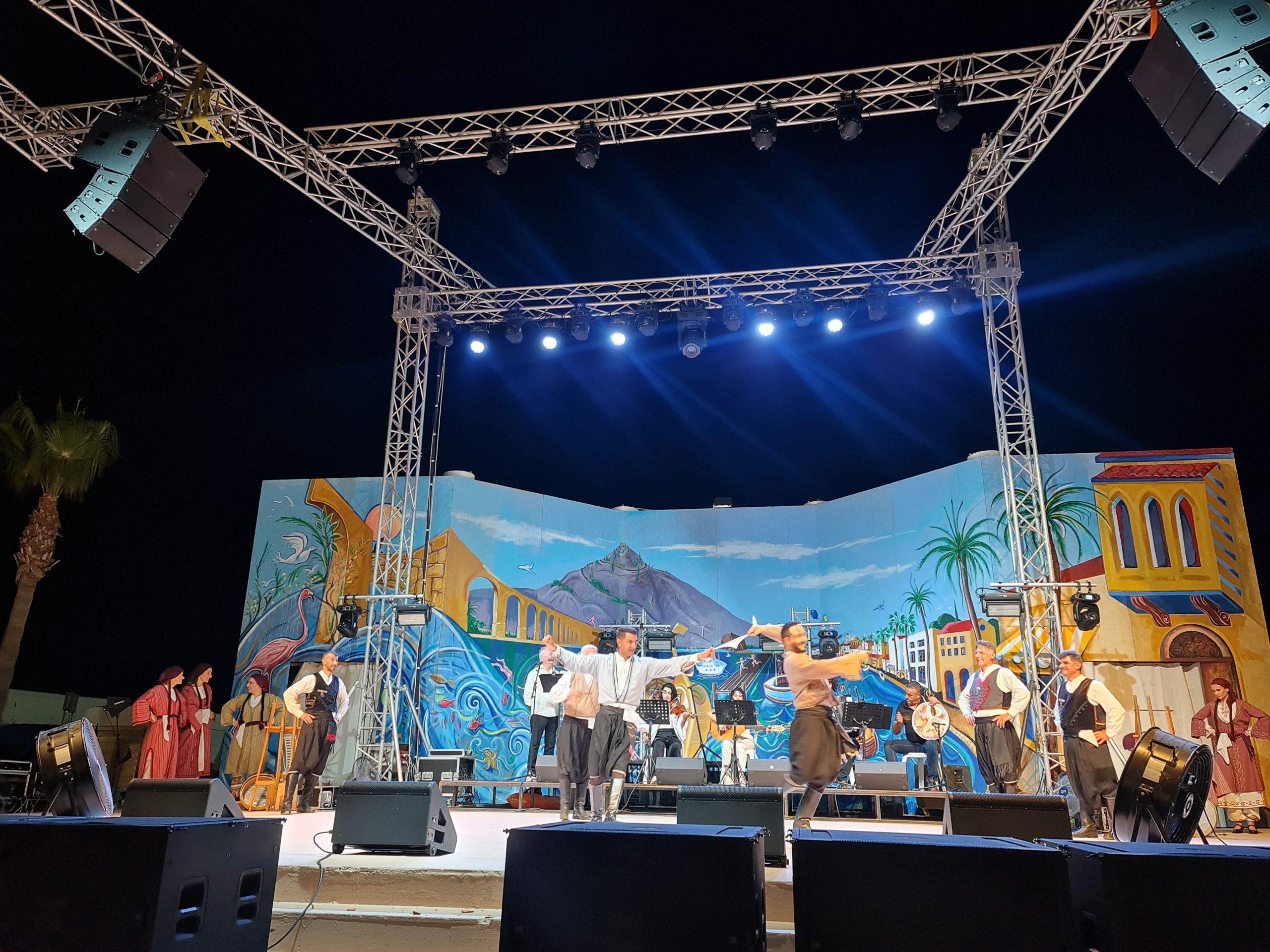
On the weekend of 22-24 June, the traditional celebrations will take place in Limassol.
On Saturday, the Ethnographic Association of Limassol will perform "Welcome! Dances and Songs of Cyprus" and three contemporary Cypriot singers. On Sunday, at the same venue and time, all guests will be treated to the national songs and dances of Crete, as well as a quintet and Cypriot singers performing a programme based on traditional melodies.
On Monday at 20:00 on the pier there will be a musical performance celebrating the cultural traditions of Cyprus with dancers, singers and poets. Special guests will perform the most famous and popular Greek songs from different decades. On Sunday and Monday, the youngest guests will be entertained at the Christos and Miltos Christoforou Amphitheatre. From 18:00 to 20:00 there will be creative activities for children with colours. And at 20:00 there will be a shadow play with the adventures of the Karagiozis puppet.

Kataklysmos in Cyprus is a colourful and lively celebration that combines elements of Greek mythology, Christian tradition and modern cultural practices.
It attracts many people and creates an atmosphere of joy, unity and renewal. This holiday is a great opportunity for anyone who wants to experience the rich culture and traditions of Cyprus, as well as enjoy its hospitality and beauty. If you are looking for a unique and unforgettable event that will allow you to experience the true spirit of Cyprus, Kataklysmos is the perfect choice.
Read also:
- Interview with Maryna Komarnytska - Head of DOM Real Estate Office in Famagusta
- Interview with Irina Eroshenko, a leading broker of the DOM Real Estate Agency
- Interview with Alexander Gusev - Head of DOM Real Estate office in Limassol
- Permanent Residency in Cyprus in 2024
- 6 Ways to Relocate to Cyprus in 2024

